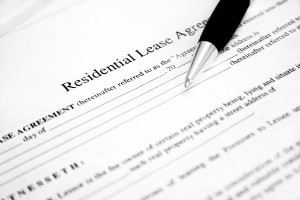
If you’re unsure what to consider when creating a lease, consult our attorneys or download our free New Jersey Landlord Law Guide.
If you are unsure what to consider when creating a lease, consult our New Jersey Landlord Law Guide. You can also contact our office to set up a free consultation with our experienced landlord attorneys. In the meantime, here is some helpful information about leases and rental agreements.
What to Consider When Creating a Lease | Tips
It is essential that a landlord draft his lease very carefully because the purpose of that lease is to provide clear protections for the landlord. Absent a lease, a tenant is not obligated to abide by any rules or regulations other than the timely payment of rent, so it is a big mistake for any landlord not to have a lease. Many landlords hold to the erroneous belief that a lease somehow helps the tenant; however, that is absolutely false.
As a landlord, it is important that you make sure your lease includes specific language that prevents such conduct as having pets, if that is a clause you require your tenants to fulfill. You may also prohibit other behaviors such as smoking or the playing of loud music at times that are after normal hours.
You can even set forth clear timetables to govern when the rent is to be collected. Also, if the rent is going to be late, the lease must clearly state when the late period begins. Late charges must be clearly stated in the lease – and they have to be deemed to be additional rent. An additional rent clause must be included in every lease because, without an additional rent clause, you cannot seek to recover those charges in Landlord-Tenant Court as part of the rent. It is very important to set forth your expectations of your tenants in unambiguous and specific language.
Download Our FREE Landlord Law Guide
What to Consider When Creating a Lease | Written vs Verbal
Obviously, a verbal agreement is one which has not been reduced to writing and, except for cases regarding payment of rent which the landlord can generally substantiate by keeping written receipts showing the manner in which payment of rent is made, such leases are virtually unenforceable in a Landlord-Tenant Court. If he has not insisted upon a written lease, a landlord’s attempts to evict a tenant for other violations – meaning those which the landlord imposes as violations of the tenancy – will encounter serious challenges.
Being a property owner with tenants can be both rewarding and frustrating. Contact our office today for a free consultation if you are facing any issues regarding leases in New Jersey.
